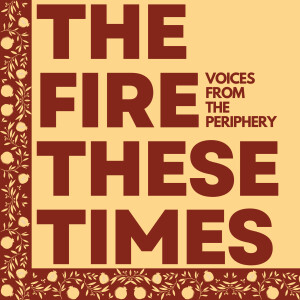
73/ 1958: Re-imagining a Revolutionary Year in Revolutionary Times (with Jeffrey Karam)
 2021-05-02
2021-05-02
Download
Right click and do "save link as"
This is a conversation with Jeffrey Karam. He’s Assistant Professor of Political Science at the Lebanese American University and an associate at Harvard’s Middle East Initiative.
He’s also the editor of the book “The Middle East in 1958: Reimagining a Revolutionary Year“, the topic of our conversation.
Get early access + more perks at Patreon.com/firethesetimes
Blog: https://thefirethisti.me
You can follow on Twitter or Instagram @ firethesetimes too.
Topics Discussed:
- What was so special about 1958? Its legacy in the Middle East and the world
- The formation of the short-lived United Arab Republic (between Egypt and Syria), the Iraq revolution, the attempted coup in Jordan, the slide towards more authoritarianism in Iran, the clash between the princes in Saudi Arabia, the collapse of the fourth republic in France etc
- The internationalization of the region and the role of the great powers (US, UK, France, USSR)
- History as non-linear, connecting different threads
- Authoritarianism in the region and the role of the big powers
- Asking ‘what ifs’ in thinking about history
- 1957 in Lebanon (the rigged elections with US support) and the 1958 events
- A look into the debates on decolonization, revolutionary nationalism, internationalism, post-colonialism, imperialism, anti-imperialism and state formation
- Lessons from 1958 for the present day, the example of Iraq
- How hope is linked to the understanding of time
- Upcoming book: The Lebanon Uprising of 2019: Voices from the Revolution, co-edited with Rima Majed
- Learning about revolutions in revolutionary times
Book recommendations
- Coups and Revolutions: Mass Mobilization, the Egyptian Military, and the United States from Mubarak to Sisi by Amy Austin Holmes
- Oilcraft: The Myths of Scarcity and Security That Haunt U.S. Energy Policy by Robert Vitalis
- The Politics of Art Dissent and Cultural Diplomacy in Lebanon, Palestine, and Jordan by Hanan Toukan
- The Paranoid Style in American Diplomacy Oil and Arab Nationalism in Iraq by Brandon Wolfe-Hunnicutt
- Winning Lebanon: Youth Politics, Populism, and the Production of Sectarian Violence, 1920–1958 by Dylan Baum
- Banking on the State The Financial Foundations of Lebanon by Hicham Safieddine
Resources mentioned/that are relevant
- 07. Denying Genocide, from Halabja to Ghouta with Sabrina Azad
- 14. Revolution, disenchantment and the Lebanese New Left with Fadi Bardawil
More Episodes
174/ Lebanon From 1860 to the Present Day
 2024-10-25
2024-10-25
 2024-10-25
2024-10-25
173/ This Arab is Queer w/Elias Jahshan
 2024-09-27
2024-09-27
 2024-09-27
2024-09-27
Premium Episode 2: Hezbollah (Sample)
 2024-09-24
2024-09-24
 2024-09-24
2024-09-24
161/ The Gaza Genocide Changes Everything
 2024-05-28
2024-05-28
 2024-05-28
2024-05-28
012345678910111213141516171819
Create your
podcast in
minutes
- Full-featured podcast site
- Unlimited storage and bandwidth
- Comprehensive podcast stats
- Distribute to Apple Podcasts, Spotify, and more
- Make money with your podcast
It is Free
- Privacy Policy
- Cookie Policy
- Terms of Use
- Consent Preferences
- Copyright © 2015-2024 Podbean.com





